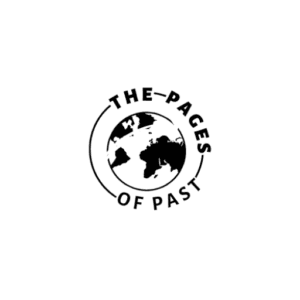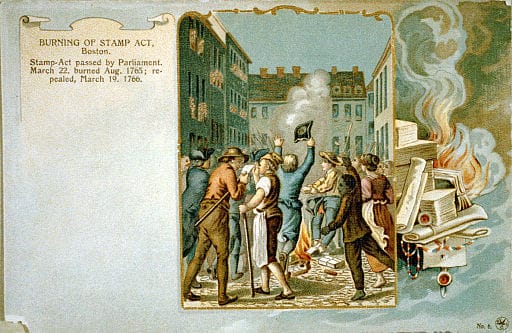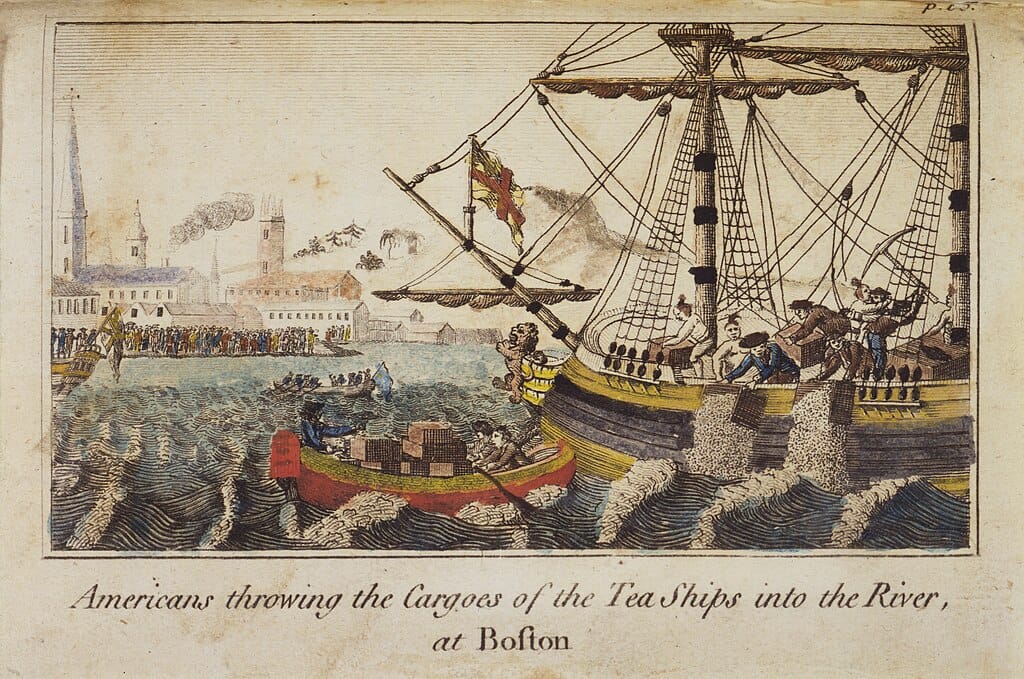Introduction of the Townshend Act
You might have wondered how some small and simple taxes could become the reason for a complete revolution. If you have thought about it, then these Townshend Acts of 1767 are an important part of that story. Not only this, these laws were named after Charles Townshend, who was Britain’s Chancellor of the Exchequer and these laws imposed duties on every everyday item like glass, paper, paint and tea imported into the American colonies.
Today these taxes might seem small The Continental Army but at that time they caused a lot of resentment among the colonists because they had no voice in the British Parliament. The Townshend Acts were not just for revenue but it was a way of showing control through which the British government wanted to show its dominance over the colonies and wanted to give money directly to the royal officials without involving the colonial legislatures.
This step was just like adding fuel to the fire. The colonists felt that their rights were being directly attacked. And “No taxation without representation” was not just a slogan but it was a rallying cry which was raised against such laws.
So how did the Americans react to this? With resistance. Merchants also started boycotting British goods and protesters came onto the streets. Not only this, Writers like John Dickinson wrote sharp and emotional pamphlets against these acts and common people made even the smallest things in their homes, like a cup of tea, a powerful symbol of rebellion.
So it was not just a matter of tax, it was a matter of freedom, dignity and the right to self-govern. The Townshend Acts may be on a small page of history but their legacy is felt even today. They taught Americans that ordinary people can stand up to a powerful empire and win, and they also reminded us that the path to independence was paved with small, courageous actions and it could sometimes start with just a paint tax.
Golden Words of the Townshend Act
The Townshend Acts were a set of laws passed by the British Parliament in 1767. Under these laws, goods imported into the American colonies such as glass, paper, paint, lead and tea, were taxed.
These taxes were imposed to raise money for Britain, but the colonists felt this was completely unfair. Since they had no representative in Parliament, many Americans believed that these tariffs were a misuse of British authority and a violation of their rights.
The Townshend Acts unleashed a wave of protests all around and became a major turning point that paved the way for the American Revolution.
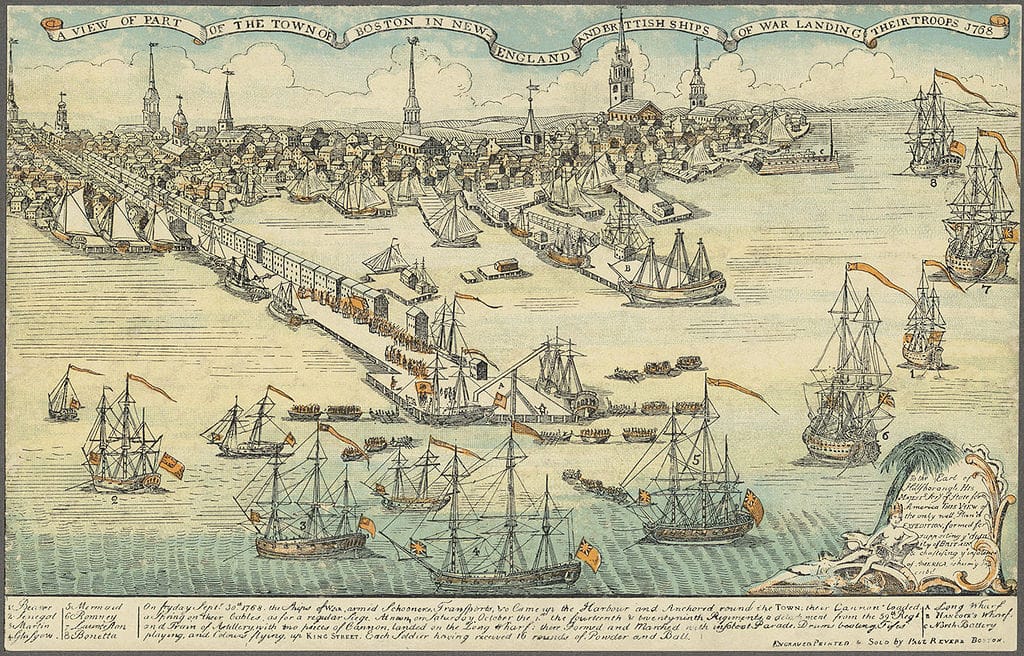
British troops land in Boston Harbor in 1768, enforcing the Townshend Act and heightening tensions between colonists and the Crown.
What was The Townshend Act of 1767
The Townshend Act of 1767 was not just a law—it was a set of four separate laws passed by the British Parliament. Its main purpose was to show its control over the American colonies and also to collect some essential money. After a lot of opposition against the Stamp Act of 1765, Britain thought of collecting money more softly—in a way that did not directly tax the colonists. Instead of taxing everyday transactions, the Townshend Acts imposed duties on imported goods—things without which the colonists could not function and which they could not easily make themselves. These included:
- Glass
- Lead
- Paint
- Paper
- Tea
What was the idea? Tax goods before they even reach the colonies. This way, the British government felt they could avoid the wrath of the direct tax. From London’s perspective, this seemed like a somewhat “reasonable” solution. Tax was included in the price of the product itself, and the colonists would not have to pay separately. But the story in the colonies was different.
Many Americans considered the Townshend Acts as another ploy of Britain, in which control was being imposed on them without their permission. The slogan of “No taxation without representation” started ringing again. Colonists said that they should not be taxed by a government where they did not have any elected representative.
The reaction was very sharp and aggressive.
Boycotts began. Colonial merchants stopped importing British goods and American citizens started making goods at home so that their dependence on taxed imports would be reduced. Tensions started increasing not only economically but also at the political and social levels. What Parliament thought was a smart solution further inflamed colonial anger and added fuel to the revolutionary spirit.
The simple point is this: the Townshend Acts were not just taxing goods—they were taxing trusts. And this damage was not going to be easily reversed.
When did the Townshend Act Start
The Townshend Acts were a series of British laws passed by the British Parliament in the summer of 1767. They were named after Chancellor of the Exchequer Charles Townshend. These acts were approved between June and July 1767.
But although these laws were passed in the middle of the year, their actual enforcement did not begin immediately.
Most provisions officially came into force from 20 November 1767. From that day onwards, British customs officials began imposing new import taxes at colonial ports. These duties were imposed on goods that were used a lot in everyday life—stuff like glass, paper, paint, lead, and tea.
Enforcement was most visible at major seaports—Boston and New York—where customs agents tightened control on incoming shipments.
Its main purpose was to raise revenue for Britain and establish its imperial authority, especially after the expenses incurred after the French and Indian Wars.
But colonists considered these taxes a misuse of power because they were imposed without their consent.
This start date was a major turning point for colonial resistance. The Townshend Acts unleashed protests, boycotts and growing anger that became the basis for even more intense conflict between shaky Britain and its American colonies.”
What was The Purpose of The Townshend Act
The Townshend Acts, passed by the British Parliament in 1767 were not just about raising money—they were also about sending a message. After the backlash against the Stamp Act and its repeal in 1766, Britain needed to assert its authority over its colonies. The Townshend Acts were a response to that.
The two main goals behind these laws were:
- To Control Colonial Officials by Raising Revenue
A major concern of the British government was how loyal colonial officials—especially judges or governors—were. Previously, these officials were paid by colonial assemblies, which had a lot of influence over local leaders.
The British Parliament decided that these officials would be paid directly by the Crown from the revenue collected through the Townshend Acts. This would keep their loyalty to the British Crown rather than local governments.
This was a smart financial move but it also had a political aim:
Reduce the influence of colonial assemblies and keep control centralized.
- Reinforce Parliamentary Power
The second and perhaps the most important goal was to remind the colonies who was the boss. The repeal of the Stamp Act was a big victory for the colonial resistance and the British leaders feared that their control was coming to an end.
Through the Townshend Acts, they tried to show that the Parliament still had the power—and that it could impose taxes without the permission of the colonies.
These taxes were imposed on daily imports such as:
- glass
- paper
- paint
- tea
Not just to collect money but also to make a strong political statement.
In fact, the Townshend Acts were a mix—on one hand, it was a financial strategy and on the other hand a way to show political power.
These Acts incited anger in the colonies and that anger became the fire of the American Revolution. The colonists did not see these laws as mere ways of collecting money—they saw them as an attack on their self-governance and a direct challenge to their rights.
So what was the purpose of the Townshend Acts really?
To pay the officials? Yes.
To collect money? Absolutely.
But most of all they were to remind that Parliament had the power—and that this power would not be easily shared.”
Colonial non-importation agreement against the Townshend Act, signed by 650 Bostonians including Paul Revere, dated October 28, 1767.
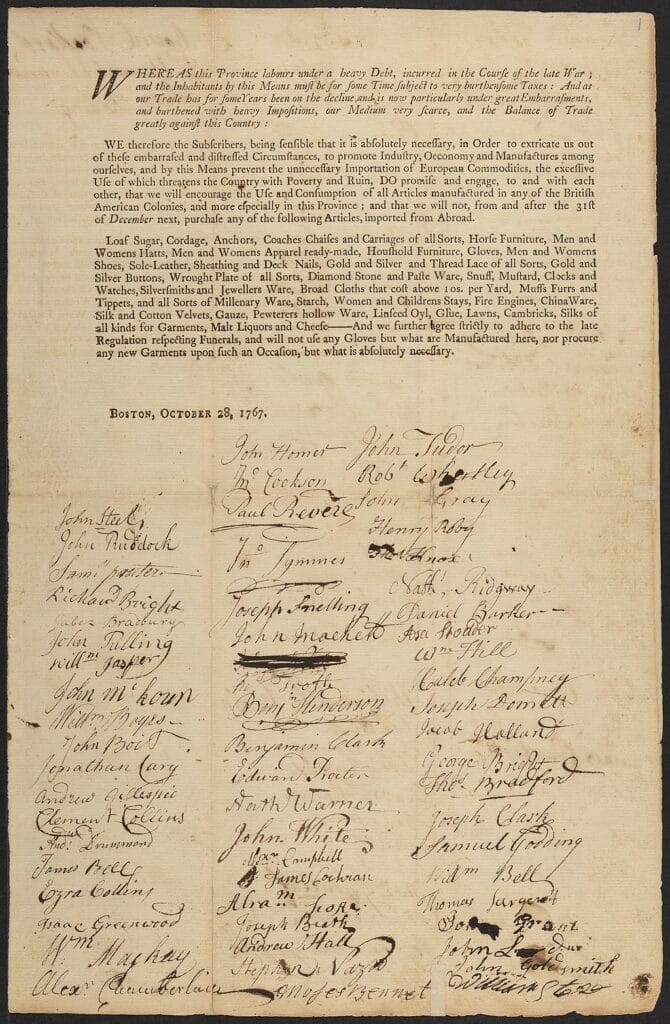
What were The Townshend Duties of 1767
In 1767, the British Parliament passed some laws known as Townshend Duties, which were named after Chancellor of the Exchequer Charles Townshend. The purpose of these acts was to strengthen its control over the American colonies and to collect revenue for Britain. But these laws caused a lot of resentment and opposition in the colonies. Here is an easy breakdown of the four main acts of Townshend Duties:
1. The Revenue Act
Under this act, an import tax was imposed on items that were used daily in the colonies, like glass, lead paint, paper, and tea. The objective of these taxes was to make money from colonial trade without directly taxing their internal activities. Even though these duties may seem small in amount, the colonists considered this a dangerous example – another example of “taxation without representation”.
2. The Commissioners of Customs Act
To enforce these new taxes, Britain created a customs board in Boston. This board got extra powers to look after colonial ports and prevent smuggling. Smuggling was affecting the British tax system. This act increased tensions, especially in Boston, where the colonists considered customs officials to be corrupt and too strict.
3. The Indemnity Act
This law was made to give a competitive advantage to the British East India Company. Under this, the company had to pay less tax on tea exports to Britain so that it could sell its goods in the colonies, even if it was subject to the Townshend tax. But many colonists saw this as a clever way to force them to accept the principles of British taxation.
4. The New York Restraining Act
When the New York colonial assembly refused to comply with the Quartering Act (which asked the colonists to house and supply British troops), Parliament passed this act in response. This act suspended the legislative powers of the New York Assembly until they complied. For the colonists, this was a direct attack on their rights to self-governance.
What Happened in The Townshend Act
The Townshend Acts of 1767 sparked immediate anger in the American colonies—not just because people did not like to pay taxes, but because they believed that taxes should come from their own elected colonial assemblies, not the British Parliament.
These laws imposed duties on everyday imported items—like glass, paint, paper, and tea. For the colonists, this was not just a question of money, but of power and rights. They took these acts as another example of Britain’s attempt to strengthen its hold on the colonies, without giving them a voice.
The colonists did not keep quiet in this protest. They launched resistance campaigns in large and creative ways:
- Boycotts became a powerful weapon. Americans stopped buying British goods, especially expensive luxury items, which was a way to send a strong economic message.
- Smuggling increased. Colonists began to import goods from other countries secretly so as not to have to pay British taxes.
- Public protests began—sometimes peaceful, sometimes violent. Tension between citizens and British officials increased every day.
- The press caught fire. Newspapers, poems and pamphlets began to fill with articles full of passionate arguments and burning demands for justice.
One special protest was that of the Daughters of Liberty—a group of women who took the work into their own hands. Instead of buying expensive British cloth, they encouraged others to spin yarn and weave cloth at home. This was not just an issue of clothes but of self-respect and freedom.
After all, the Townshend Acts didn’t just tax imported goods—they also tested the patience and loyalty of the American people. And every single step of resistance moved America forward on the path of revolution.
What Happened During The Townshend Act
In 1767, the British Parliament passed the Townshend Acts, which imposed taxes on daily use items like glass, paper, paint, and tea imported into the American colonies. This was a normal way for Britain to earn money, but the colonists saw it as another unjust attempt to control them without their consent.
The resistance soon failed. Boston became the center of protests, where merchants boycotted British goods and angry crowds confronted customs officials. The situation worsened so much that in 1768 Britain had to send its soldiers (Redcoats) to Boston to maintain order and protect the tax collectors.
But the presence of those redcoats increased the hatred and tension even more instead of bringing peace to the city.
Then on 5 March 1770, tensions exploded. That day, British soldiers fired on a crowd of protesting colonists—5 people died. This incident later came to be known as the Boston Massacre.
This incident sent shockwaves throughout the colonies and the conflict between the Americans and the British Crown deepened. When Parliament felt public pressure, most Townshend taxes were repealed by the end of the same year—but one tax was left out: the tax on tea.
Why?
Just to show the right to tax their own colonies.
Big mistake.
This single tax became a symbol of British tyranny. People’s anger peaked in December 1773 when some colonists—disguised as Mohawk warriors—boarded British ships in Boston Harbor and threw 342 chests of tea into the sea.
The Boston Tea Party was not just a protest—it was a daring declaration that no more would be tolerated. What had started as a tax on household goods had now become a revolutionary movement.
Who was Involved in The Townshend Act
The Townshend Act of 1767 was not just a set of taxes—it was a political flashpoint involving some very important people on both sides of the Atlantic. Let’s see who the major players of this important moment.
- Charles Townshend
At the center of this whole matter was Charles Townshend, the British Chancellor of the Exchequer. He was known for his sharp thinking and political ambitions.
Townshend had proposed this Act so that revenue could be raised from the American colonies. What was his plan? To impose duties on imported goods such as glass, paper, and tea items that the colonists could not produce themselves. This seemed like a smart solution to Britain’s post-war debt.
But for the colonists, it was another unfair tax without representation.
- Lord Hillsborough
As Secretary of State for the Colonies, Lord Hillsborough played the role of an enforcer. He supported strict control over the colonies and ensured that the Townshend Acts were properly implemented. But his policies only increased colonial resentment and unrest.
- John Dickinson
From the colonial side, John Dickinson—a lawyer from Pennsylvania—emerged as a powerful and sensible voice. Through his popular “Letters from a Farmer in Pennsylvania“, Dickinson argued that these taxes were unconstitutional. He did not call for rebellion but he firmly believed that Parliament had no right to tax its colonies for revenue.
- Samuel Adams
During this time in Boston, Samuel Adams took a more active approach. As a fiery organizer and speaker, Adams helped rally public resistance. He organized protests, promoted the boycott of British goods and played a key role in uniting the colonies against British interference.
- The Sons of Liberty
Behind the street-level actions, there was often a secret group—The Sons of Liberty. This group openly opposed British policies. They organized protests, intimidated customs officials and fueled public defense. His tactics were a little controversial but they brought colonial grievances into the spotlight and built momentum for broader resistance.
- Benjamin Franklin
In the midst of all this, Benjamin Franklin—who was representing the interests of the colonies in London at the time—also warned Parliament about the consequences. Franklin wanted a compromise but he warned that if the colonies were pushed too much, it would create a major conflict. Parliament largely ignored his warning.
In the end, the Townshend Act did not just raise taxes—it became the reason for a united colonial resistance and brought previously hidden tensions to the surface.
Townshend Act Description
Imagine if you are asked to pay tax on things you use daily like tea, glass, or paint without your opinion being asked. This is exactly what the American colonists felt when the British government passed the Townshend Acts in 1767.
In simple terms, the Townshend Acts were laws made by Britain so that money could be collected by imposing taxes on things imported into the American colonies. Like tea, paper, glass and paint – all these were taxed when they came from Britain. Colonists had no problem buying these things but they felt that taxing them without their consent was wrong.
This was the real problem: the colonists had no representative in the British Parliament. Meaning, when the Parliament made these laws, the Americans had no say in the decision. This is why a famous line was coined: “No taxation without representation.”
For many colonists, this was not just a matter of money. They considered this another attempt in which Britain wanted to control the colonies from a distance. In response, the colonists began a boycott—they stopped buying British goods and started making their own things to avoid taxes. Protests grew, newspapers spread the resistance, and local leaders like Samuel Adams awakened people’s thinking.
But Britain did not give in easily. To enforce the tax, it started sending more British soldiers to colonial towns, especially Boston. This made the situation even worse. The tension between soldiers and colonists grew so much that it reached the point of violence—the most famous example was the Boston Massacre of 1770 where, during a protest, British soldiers killed five colonists.
Britain eventually repealed most of the taxes of the Townshend Acts but taxes continued to be imposed on four. But by then the damage had been done. Confidence had been broken. Colonists had learned to stand up for themselves by uniting and their resistance had become stronger than before.
In simple words, the Townshend Acts were not just a tax—they were a spark. Who went ahead and further fuelled the fire of the American Revolution?
Revolution in Words and Deeds: Quotes and Anecdotes from the American Resistance
History is not just a series of steps—it is the voice and deeds of people who fight for what they believe in. The passionate words and courageous acts of resistance in the early days of the American Revolution fueled growing tensions between the colonies and the British Crown.
The Power of Protest in Words
In 1767, John Dickinson—a lawyer and representative of Pennsylvania—wrote a message that echoed throughout the colonies:
“We are taxed without our consent… If we are taxed without representation, we are slaves.”
Dickinson’s words gave voice to the people’s anger against British taxes. The colonists believed that any tax imposed by Parliament without elected representatives was equivalent to tyranny.
Samuel Adams, a passionate patriot from Boston, put forward this fear as a question that was the crux of the colonial concerns:
“If our trade be taxed, why not our lands? Why not the produce of our lands and everything we possess or make use of?”
Adams was not just speaking for himself—he was expressing the fear of the entire community. The fear was that the British government would not be limited to goods alone—it would take control of everything, be it land or a person’s private property.
Defence Woven by Hand
The protest was not limited to speeches or petitions. In every town and village, colonial women started protesting in their own unique way. They organized “spinning bees” in response to the heavy taxes on British goods.
This meeting was not just for making clothes—it was a political statement. Women spun clothes made at home to protest against British imports—and through this process proclaimed their freedom. Every homespun fabric yard became a thread in the cloth of rebellion.
Smuggling Seizure and Street Fury
The most violent incident of the initial protests took place in 1768 when British officers seized a ship named Liberty. This ship belonged to a wealthy businessman from Boston, John Hancock, who was accused of smuggling.
After this incident, Hancock immediately became a popular hero. The seizure of the ship incited immense anger among the people. Crowds gathered on the waterfront, there was fierce protest and British customs officers had to flee from the city. They took refuge on a nearby British battleship, proving how deep and intense the colonial opposition had become.
Townshend Act Summary
The Townshend Acts of 1767 were a set of British laws designed to increase control over the American colonies, which were increasingly being opposed. These acts were named after Charles Townshend, the British Chancellor of the Exchequer. Under these laws, import duties were imposed on certain essential items—glass, lead paint paper, and tea—sent to the colonies. Earlier taxes were imposed to regulate trade, but the main purpose of the Townshend Acts was to raise revenue for the British crown.
Main Objectives of the Townshend Acts:
1. Financial Independence for British Officials:
The duties collected were used to pay salaries to colonial governors and judges. This ended the financial control of colonial legislatures over them. The result was that these officials now became loyal to the Crown rather than the local assemblies.
2. Strengthening the British Authority:
By bypassing colonial self-governance, Britain wanted to tighten its imperial control and suppress the growing opposition in the colonies.
3. Ban on Foreign Goods:
This act also had some provisions that would reduce the use of foreign lace and needlework. This was part of Britain’s promotion of its domestic products and stopping non-British imports.
How Did The Colonists React to The Townshend Act:
1. Widespread Resistance:
Colonists saw these acts as another example of “taxation without representation,” which further inflamed their anger.
2. Boycotts or Non-Importation Agreements:
Merchants and the general public together organized large-scale boycotts of British goods. This was the same tactic that had been used during the first Stamp Act.
3. Escalation of Tensions:
When resistance became more intense, the seeds of revolutionary thinking were sown.
4. Partial Repeal and Lingering Impact:
When pressure grew too high in 1770, the British Parliament abolished most Townshend duties—but the tea tax remained in place. This tax was now a symbol of Parliamentary authority. This remaining tax became the basis of the Tea Act of 1773, which reduced the price of tea but reaffirmed Britain’s right to tax it.
In response to this, the Boston Tea Party took place, a bold and symbolic protest that proved to be a major turning point on the path to the American Revolution.
